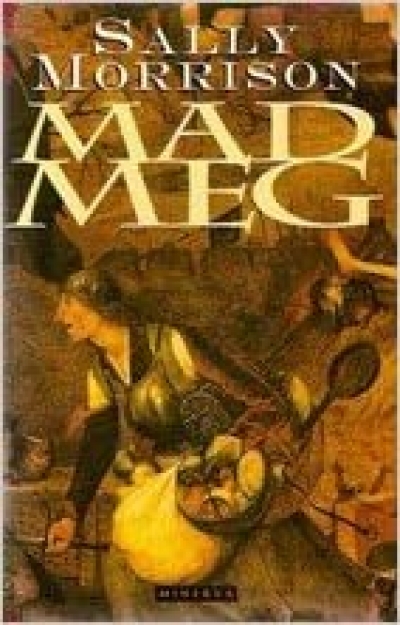Fiction
Midway through Sally Morrison’s new novel, Mad Meg, I began to develop the scissor twitch, an almost overwhelming urge to cut it up and reassemble it into a new structure. Not quite the vandalism it suggests – I read Mad Meg in galley pages, which encourages scissorly desires. It is a vast, kaleidoscopic novel, which opens with a wonderful mischievous energy, full of surprises and pleasures, and laconic wit. Yet it begins to teeter midway and, in my view, ends in unnecessary disarray. Hence the twitch.
... (read more)Janine Burke in Lullaby, is writing about writing-out. Her character, Bea, is a writer with a block, seemingly precipitated by the failure of a marriage and the temporary loss of a recent lover, but the author is trying for much more than just this one story, which looks, on the evidence of the first chapter, to have more than enough fuel in it for a novel.
... (read more)Ever since the publication of Margaret Atwood’s first novels, The Edible Woman and Surfacing, she has been seized upon as a writer who articulated the predicament of being female in contemporary western societies. Her Canadian origins were no barrier for many Australian women, who read her as though she spoke with their voice. Atwood was like a ‘sister’ who didn’t fail them – someone who’d been there and could help light the way.
... (read more)Each of the three parts that make up Thea Astley’s new novel, Coda, is prefaced by a newspaper report, real or imaginary, detailing cases of ‘granny-dumping’, the ruthless abandonment of old, frail, and disoriented people by their unidentified children. This sets the scene for a reflection on old age and the rejection of those whose physical and mental capacities no longer meet the stringent requirements of the standard economically viable unit of modem civilisation. The manifest duty of such objects is to be as discreet as possible, providing minimal inconvenience to others (especially their adult children) until they can fade into oblivion.
... (read more)The Elephant Vanishes by Haruki Murakami, translated by Alfred Birnbaum and Jay Rubin
Every adventurous reader of fiction ought to have a private hoard of novelists, preferably from a non-English writing background, who have escaped the appalling nonsense of Booker-style PR hype. Luckily, publishers like Collins Harvill set about promoting such writers; unluckily for Australia, though, our major literary pages often neglect to review the bulk of such output. You will have your favourites in such a category, but let this reviewer recommend the following: Jose Donoso, Etienne Leroux, Jose Saramago, Eduardo Mendoza, Saiichi Maruya, and Haruki Murakami.
... (read more)The faded but still brave word ‘grand’ in the title of Frank Moorhouse’s new novel gives a signal from another age, the 1920s, when after the war-to-end-all-wars there were grand ideals and grand hotels. It is also fitting that the League of Nations, the setting for the book, should in the 1920s have had its headquarters in Geneva in a former luxury hotel, while its own rather unfortunately named Palais was being built.
... (read more)We are introduced to the eponymous hero of Jacko by an Australian narrator who is writing a novel about China and teaching a writing class at New York University. The students in his class hero-worship Grace Paley, Alice Munro, and Raymond Carver and compose pieces for submission to the New Yorker.
... (read more)In 1868 John Heaps (alias Muley Moloch), a preacher, self-styled prophet, and trained bootmaker, left England with a group of eight women bound for Australia. Their intention was to set up a mission dedicated to the development of their own perfection and a preparation for the Second Coming of Christ ...
... (read more)With the publication of Rodney Hall’s latest novel, The Grisly Wife, the author has brought to completion a trilogy that first began appearing in 1988. Since this last published novel is actually the middle work of the trilogy and what were formerly two separate novels are now bridged by this newcomer, we are finally given the opportunity to assess if and how the parts relate to the whole.
... (read more)Grand Days is volume one of Frank Moorhouse’s Palais des Nations novels, and is connected to the author’s previous works Forty-Seventeen and The Electrical Experience by the characters of Edith Campbell Berry and George McDowell. The principal narrative of Grand Days goes on for 500 or so pages, and is followed by some thirty pages of notes and explanations which form another narrative. The most interesting narrative of all, to me, however, is the story of where this book fits into the life and work of Frank Moorhouse.
... (read more)









